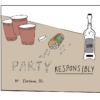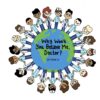Hearing loss can be caused by a wide variety of factors, ranging from genetic conditions, infectious diseases, chronic ear infections, birth complications, noise, and aging. Although some hearing loss cannot be prevented, many awareness campaigns focus on preventable noise-induced hearing loss. A recent report published by the World Health Organization (WHO) indicates that 1.1 billion teenagers and young adults face the potential risk of hearing loss caused by preventable noise sources, such as personal audio devices and dangerous levels of sound exposure.
Hearing loss can be caused by dangerously high levels of sound intensity or prolonged exposure to a specific sound level. Sound intensity is commonly measured in decibels, with 0 decibels being the threshold of hearing in humans and 130 decibels being the threshold of pain. Decibels are measured on a logarithmic scale, so 90 decibels is twice as loud as 80 decibels, and 130 decibels is twice as loud as 120 decibels. For example, noise emitted from an airplane engine at takeoff (140 decibels) reaches a dangerous sound level, so airport personnel who work on the runway are often required to wear protective ear defenders. Teenagers and young adults who frequently attend concerts also face a risk of temporary or permanent hearing loss since the noise level at many music concerts reaches 120 decibels. While the human threshold of pain is at 130 decibels, sustained exposure to sounds at or above 90 decibels can cause permanent hearing loss.
The WHO study indicates 50% of teenagers and young adults aged twelve to thirty-five years are exposed to unsafe sound levels from personal audio devices, such as smartphones or iPods. 40% of that age group is also exposed to dangerous levels of sound from entertainment venues, such as concerts, nightclubs, and sporting events. Also included in the at-risk category are pop performers and concert musicians, who frequently are exposed to high intensity sound levels for long durations that often lead to noise-induced hearing loss. Coldplay lead singer Chris Martin developed a condition called tinnitus as a result of excessive and long-term exposure to high intensity sounds as a musician and performer. Tinnitus is a continuous noise or ringing in the ears and is a common symptom associated with hearing loss or injury to the ear.
To address the issue of loud, unsafe listening, the World Health Organization has started an annual International Ear Care Day campaign on March 3rd to promote the issue of noise-induced hearing loss. The 2015 theme for the International Ear Care Day was called the “Make Listening Safe” initiative, which focused on reducing preventable methods of hearing loss in the targeted twelve to thirty-five year-old age group. To also reduce hearing loss in the work environment, the Occupational Safety and Health Administration has established guidelines for the number of hours per day employees can be exposed to specific sounds. Exposure to 90 decibels is limited to eight hours per day, while exposure to 110 decibels is restricted to half an hour.
To prevent permanent hearing loss, consider wearing noise-canceling headphones or earplugs in loud environments and entertainment venues. Also, reduce the volume when listening to personal audio devices. By taking precautions, you can protect your hearing and avoid preventable damage to your ears.
Image Source: Leon Neal / Staff
Feature Image Source: Drew Ressler










